- Tel: (+91) 9874375544
- Email: info@jisiasr.org
Driving innovation in clean energy, sustainability, and a greener tomorrow.
The Centre for Renewable & Sustainable Energy Studies (CReSES) at JIS Institute of Advanced Studies & Research is committed to preparing the next generation of skilled professionals and researchers to lead India's clean energy transformation. Unlike conventional postgraduate programs, CReSES offers an immersive research-driven experience even at the masters’ level, with focused training in solar photovoltaics, environmental impact assessment, hydrogen energy, smart sensors & instrumentation, biomedical instrumentation, thermal energy systems, carbon sequestration, waste to energy, electric vehicle technology, battery storage, and smart energy management.
The Centre actively engages students in industry-relevant and application-oriented research, supported by a multidisciplinary faculty team and well-equipped laboratories. In line with India’s renewable energy roadmap, our programs are designed to build human capital for a carbon-optimized and circular economy. Students—whether fresh graduates or working professionals—are encouraged to contribute to innovative solutions in energy generation, storage, mobility, and recycling, aligning with both national missions and global sustainability goals.
With a strong focus on academic excellence, hands-on research, academic and industry collaboration, CReSES stands as a unique hub in Eastern India for advancing clean and sustainable energy technologies.
To emerge as a centre of excellence in education and research dedicated to advancing sustainable energy and green mobility solutions, through the development of skilled professionals, innovative technologies, and impactful research that contribute to a cleaner, carbon-optimised, and circular global economy.
In response to the urgent challenges posed by global climate change and the transition from fossil fuels to renewable energy, the Centre is committed to nurturing the next generation of scientists, engineers, and researchers through its M.Sc., M.Tech., and Ph.D. programs. Aligned with national and global sustainability goals, the Centre aims to:
Through this integrated educational and research mission, CReSES aspires to make a transformative impact on the global energy landscape and empower India’s leadership in the clean energy future.
Duration: 2 Years (In regular mode and for working professionals)
| Requirement | Details |
| Qualification | Bachelor’s Degree in Engineering (Electronics / Electrical / Instrumentation / Mechanical or Other Relevant Area) / Masters Degree in Science (Chemistry/Physics/Electronics or other Relevant Area) from Recognized University / Institute |
Duration: 2 Years
| Requirement | Details |
| Qualification | BSc (with minimum 50% marks or equivalent CGPA) in Chemistry/ Physics/ Electronics or other Relevant Area |
Areas: Renewable energy and applications / Smart and self-cleaning technology / Radiative cooling technology / Smart sensor system and instrumentation / Biomedical instrumentation / Electronics design and instrumentation / PV system reliability / Prosthetics & orthotics / Hydrogen energy / Environmental pollution and prevention / Carbon dots for sensing / Porous carbon and Graphene for various applications / EV and battery technology
The Centre for Renewable & Sustainable Energy Studies (CReSES) offers an exceptional platform for cutting-edge research and innovation through its M.Sc., M.Tech. and Ph.D. programs in the domain of Renewable Energy and allied technologies. Both postgraduate students and doctoral researchers engage in a wide array of interdisciplinary projects across high-impact areas such as advanced solar photovoltaic systems, quality and performance assessment, degradation analytics, thermal energy solutions, battery technologies, hydrogen energy, smart sensor system, instrumentation and electronic designs.
CReSES also pioneers biomedical sensor designs, prosthetics, and wearable health technologies, where interdisciplinary teams integrate electronics, materials science, and data analytics to address healthcare challenges. This unique convergence of energy and biomedical innovation enables the Centre to drive solutions that advance both sustainability and quality of life.
Through deep academic investigation and practical exploration, Ph.D. scholars drive foundational research, while M.Sc. and M.Tech. students engage in application-focused studies, both leveraging state-of-the-art laboratories, internationally-experienced faculty mentorship, and active industry collaborations. This integrated learning and research environment not only builds advanced problem-solving and analytical skills, but also prepares graduates and researchers to lead innovations, influence policy, and contribute to global sustainability goals.
With increasing national and international investments in renewable energy and green mobility, CReSES graduates and Ph.D. researchers are uniquely positioned to shape the future of sustainable technologies across academia, R&D institutions, clean-tech industries, and entrepreneurial ventures.
| Sector | Roles |
| Clean Energy | Solar Energy Specialist, Hydrogen Energy Researcher, Battery Technology Engineer |
| Electric Mobility | EV System Designer, Battery Management Engineer, Smart Grid Specialist |
| Research & Development | R&D Scientist, Academic Researcher, Postdoctoral Fellow |
| Industry & Consulting | Renewable Energy Consultant, Project Manager, System Integrator |
| Entrepreneurial | Clean-Tech Startup Founder, Technology Innovator |





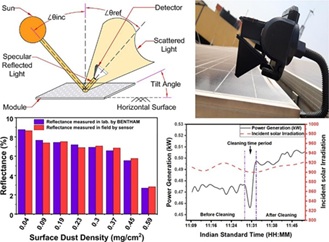
A novel specular reflectance-based dust sensor detects surface dust on solar modules, triggering cleaning cycles with 95% detection accuracy. Field trials showed a 9% improvement in daily energy generation. This cost-effective, scalable solution enhances MW-level solar plant performance by addressing dust-related underperformance.

The Mobile Green Power Pack (MGPP) is a portable solar-battery system integrated into a vehicle, providing clean electricity for events and emergencies. Deployable in cyclone-affected areas, its use on 50% of days annually reduces CO₂ emissions by 1.98 metric tons, offering a sustainable, flexible energy solution.
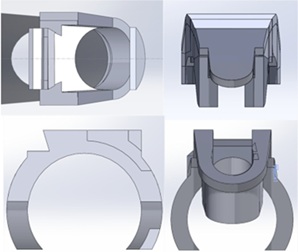
A detachable camera-light accessory for dental handpieces enhances visibility in hard-to-access oral cavity areas. Featuring a flexible, X-axis adjustable camera and adjustable light source, it improves operative precision in posterior regions. Field trials confirm its potential for clinical adoption.
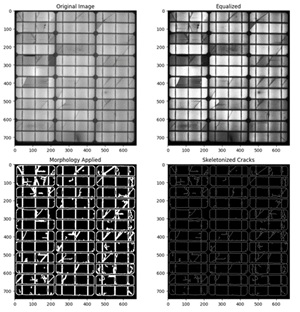
This study uses image processing on electroluminescence and thermal images to detect and classify PV module defects like cracks and shunts. Overcoming limitations of traditional methods, it ensures accurate defect identification under varying conditions, enhancing PV module reliability and performance.
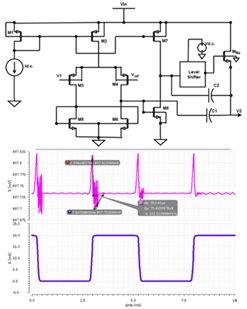
A low-voltage, low-dropout (LDO) regulator for solar PV cells achieves a 0.1 V dropout voltage and 79.2% efficiency, delivering a stable 0.9 V output from a 1 V input. With an 85° phase margin and over 50 dB DC gain, it’s ideal for low-power, solar-driven systems.
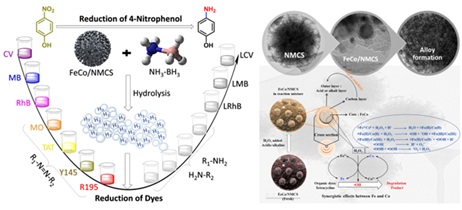
Bimetallic alloy nanoparticles supported on porous carbon, synthesized using a tube furnace, offer enhanced stability and reusability for catalysis. The use of bi-metals ensures high activity, making it effective for antibiotic degradation and hydrogen evolution applications.
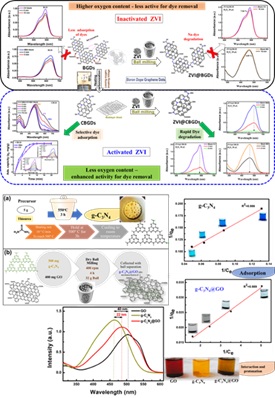
Prepared via hydrothermal treatment, carbonization, and ball milling, this graphene-carbon nitride composite enables selective dye adsorption and sonocatalytic dye degradation. Various adsorption models were applied, achieving effective environmental pollution control through wastewater treatment.

Multicolor carbon dots synthesized via microwave methods enable metal ion sensing through an OFF-ON mechanism. Graphene oxide (GO), prepared using modified Hummers method and exfoliated via ultrasonication or ball milling, supports metals@GO for adsorption and degradation in wastewater treatment.